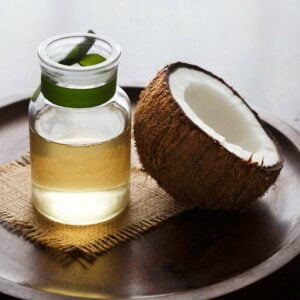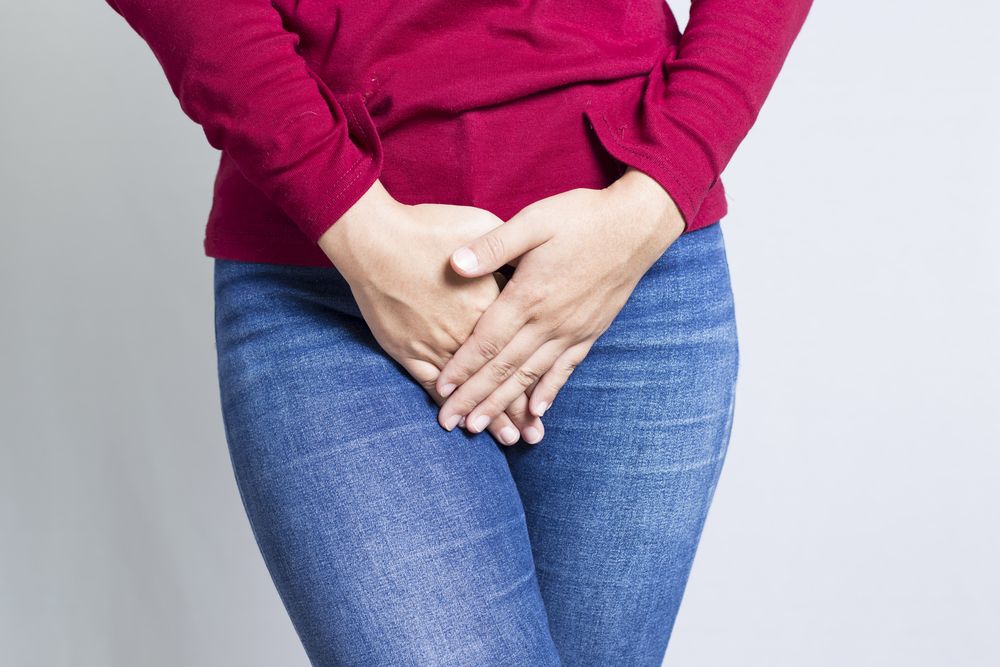Welcome to our empowering guide on addressing a common concern that many women face – vaginal dryness. While it’s a topic that may not always be openly discussed, it’s important to recognize that this condition is both prevalent and treatable. In this blog post, we will delve into the causes of vaginal dryness and explore a range of natural remedies for vaginal dryness that can help restore moisture and comfort.
Contents
What Causes Vaginal Dryness?
 Vaginal dryness can be attributed to various factors, and understanding the underlying causes is crucial for effective management and treatment. Here are some common reasons why women may experience vaginal dryness:
Vaginal dryness can be attributed to various factors, and understanding the underlying causes is crucial for effective management and treatment. Here are some common reasons why women may experience vaginal dryness:
1. Menopause
A significant decrease in estrogen levels during menopause can lead to changes in the vaginal tissue, resulting in dryness, thinning, and decreased elasticity.
2. Pregnancy and Breastfeeding
Hormonal fluctuations during pregnancy and breastfeeding can also contribute to vaginal dryness.
3. Medications
Certain medications, such as antihistamines, decongestants, hormonal birth control, and antidepressants, may have side effects that reduce natural lubrication.
4. Breastfeeding
Hormonal changes during breastfeeding can cause a drop in estrogen levels, leading to vaginal dryness for some women.
5. Chemotherapy and Radiation
Cancer treatments, especially chemotherapy and pelvic radiation, can affect the reproductive organs and lead to vaginal dryness.
6. Stress and Anxiety
Emotional factors, including stress and anxiety, can impact hormonal balance, potentially leading to vaginal dryness.
7. Douching and Harsh Cleansers
Overuse of douches and harsh soaps can disrupt the natural pH balance of the vagina, leading to dryness and irritation.
8. Lack of Arousal
Insufficient sexual arousal or lack of foreplay can contribute to vaginal dryness during sexual activity.
9. Allergies and Irritants
Allergic reactions to certain products, such as perfumes, detergents, or latex, can cause irritation and dryness.
It’s important to note that every woman’s experience is unique. And the combination of factors contributing to vaginal dryness may vary. If experiencing persistent symptoms, consulting with a healthcare provider is recommended to determine the specific cause and develop an appropriate treatment plan.
What Are Some Natural Remedies For Vaginal Dryness?
Natural remedies for vaginal dryness focus on nourishing and moisturizing the vaginal tissues, addressing underlying causes, and promoting overall well-being. Here are some natural approaches that may help alleviate vaginal dryness:
Hydration and Diet
Adequate hydration is fundamental for overall health, and it plays a significant role in maintaining vaginal moisture. The mucous membranes throughout the body, including the vagina, rely on proper hydration to function optimally. Drinking enough water daily helps ensure that the body has the fluids it needs to support various physiological functions, including lubrication in the vaginal area.
In addition to hydration, incorporating omega-3 fatty acids into your diet can contribute to vaginal health. Foods rich in omega-3s, such as flaxseeds, chia seeds, and fatty fish like salmon, provide essential fatty acids that support the lubrication of mucous membranes, potentially alleviating vaginal dryness.
Herbal Supplements
Herbal supplements can be valuable in addressing hormonal imbalances that contribute to vaginal dryness. Evening primrose oil, derived from the evening primrose plant, contains gamma-linolenic acid (GLA), an omega-6 fatty acid. GLA is believed to have anti-inflammatory and hormone-regulating effects. And, potentially aiding in alleviating vaginal dryness, particularly during hormonal changes like menopause.
Black cohosh and red clover are other herbal options known for their potential estrogen-like effects. These herbs may help balance hormonal levels, offering relief from symptoms associated with hormonal fluctuations, including vaginal dryness.
Essential Oils
Incorporating essential oils into your self-care routine can be a natural way to address vaginal dryness. Lavender oil, renowned for its calming properties, may help reduce stress and anxiety, contributing to improved overall well-being. Chamomile oil, with its anti-inflammatory qualities, can potentially soothe irritation in the vaginal area. Geranium oil, known for its hormone-balancing effects, may aid in moisturizing the skin and promoting vaginal comfort.
It’s important to note that essential oils should be used with caution and in diluted form to avoid skin irritation. Additionally, individual responses to essential oils can vary. So, it’s advisable to perform a patch test before regular use.
Aromatherapy and Relaxation Techniques
Stress and anxiety can contribute to hormonal imbalances that manifest as vaginal dryness. Incorporating aromatherapy and relaxation techniques into your routine can be beneficial. Practices such as yoga and meditation promote stress reduction and relaxation, potentially positively influencing hormonal balance.
Deep breathing exercises, part of many relaxation techniques, can help manage stress levels. By engaging in these practices regularly, you may experience a positive impact on overall well-being, potentially leading to improved vaginal health. It’s essential to find the relaxation techniques that resonate with you and make them a consistent part of your self-care routine.
Natural Lubricants
 Natural lubricants play a crucial role in managing vaginal dryness and enhancing comfort during intimate moments. Coconut oil, derived from the meat of coconuts, is a popular natural lubricant. Its moisturizing properties can be beneficial for alleviating dryness, and it is generally safe for use unless you have allergies or sensitivities. It’s important to note that coconut oil should not be used with latex condoms, as it may compromise their effectiveness.
Natural lubricants play a crucial role in managing vaginal dryness and enhancing comfort during intimate moments. Coconut oil, derived from the meat of coconuts, is a popular natural lubricant. Its moisturizing properties can be beneficial for alleviating dryness, and it is generally safe for use unless you have allergies or sensitivities. It’s important to note that coconut oil should not be used with latex condoms, as it may compromise their effectiveness.
Aloe vera gel is another natural option known for its soothing properties. Derived from the aloe vera plant, the gel can provide relief from dryness and irritation. Make sure to choose a pure, natural aloe vera gel without added chemicals or fragrances.
DIY Home Remedies
Crafting your moisturizing creams at home can be a personalized and effective approach to addressing vaginal dryness. Ingredients like shea butter, cocoa butter, and vitamin E oil are rich in nutrients that nourish and hydrate the skin. Creating a DIY moisturizer allows you to tailor the ingredients to your preferences and ensures that you are using natural, chemical-free products on the sensitive skin of the genital area.
Herbal baths provide a luxurious and therapeutic experience. Adding herbs like chamomile or calendula to warm bathwater can soothe and moisturize the vaginal area. The warmth of the water, coupled with the properties of the herbs, can promote relaxation and alleviate dryness.
Vaginal Steams
Nourishing vaginal steams involves exposing the genital area to steam infused with gentle herbs. This traditional practice is believed to support vaginal health by promoting circulation and providing moisture. Herbs such as calendula and rosemary are often used in vaginal steams for their soothing and nourishing properties.
Regular Sexual Activity
Engaging in regular sexual activity is a natural way to promote vaginal health. Sexual arousal stimulates blood flow to the genital area, encouraging the natural production of lubrication. Regular intimacy can help maintain the elasticity of vaginal tissues and contribute to overall vaginal comfort. Open communication with your partner is essential to ensure a comfortable and enjoyable experience.
If vaginal dryness is a concern, incorporating additional lubrication options, such as natural lubricants, can enhance comfort during sexual activity. It’s crucial to prioritize mutual consent and understanding in intimate relationships.
Remember, individual responses to these remedies can always vary. Hence, it’s advisable to consult with a healthcare professional before trying new interventions, especially if you have pre-existing health conditions or concerns.
What Are Some Tips To Take Care Of Vagina?
 Taking care of your vagina is an essential aspect of women’s health. Here are some tips to help you maintain a healthy and comfortable vaginal environment:
Taking care of your vagina is an essential aspect of women’s health. Here are some tips to help you maintain a healthy and comfortable vaginal environment:
- Practice Good Hygiene: Wash the external genital area with mild, fragrance-free soap and water. Avoid using harsh soaps, douches, or scented feminine hygiene products, as they can disrupt the natural pH balance and cause irritation.
- Choose Cotton Underwear: Opt for breathable, cotton underwear to promote proper air circulation and reduce moisture buildup. Avoid tight-fitting underwear made of synthetic materials that can trap heat and moisture.
- Practice Safe Sex: Use barrier methods, such as condoms, to protect against sexually transmitted infections (STIs) and maintain a healthy sexual environment. Regular STI screenings are important, especially if you have multiple sexual partners.
- Avoid Overwashing: Limit excessive washing of the vaginal area, as this can strip away natural oils and disrupt the balance of beneficial bacteria. The vagina is self-cleaning, and overwashing can lead to irritation.
- Practice Safe Wiping: Wipe from front to back after using the toilet to prevent the spread of bacteria from the anal area to the vagina, reducing the risk of urinary tract infections (UTIs).
- Manage Menstrual Hygiene: Change tampons and pads regularly during menstruation to prevent bacterial overgrowth. Consider using fragrance-free menstrual products to reduce the risk of irritation.
- Pay Attention to Changes: Be attentive to any changes in vaginal discharge, odor, or appearance. Significant changes may indicate an infection or other health issue. If you notice anything unusual, consult with a healthcare provider.
- Regular Gynecological Check-ups: Schedule regular check-ups with your gynecologist for preventive care and early detection of any potential issues. Discuss any concerns or changes in your reproductive health during these appointments.
Remember, each woman’s body is unique, and it’s important to pay attention to your own needs and comfort. If you experience persistent symptoms, consult with a healthcare professional for personalized advice and guidance.
Conclusion
In conclusion, taking care of your vaginal health is essential for overall well-being. By incorporating simple practices like practicing good hygiene, choosing comfortable cotton underwear, staying hydrated, and maintaining a balanced diet, you can support a healthy and comfortable vaginal environment. Remember to be mindful of changes in your body, practice safe sex, and attend regular gynecological check-ups.
Natural remedies for vaginal dryness, such as using aloe vera or coconut oil, can also contribute to relief. Taking these steps, along with seeking professional advice if needed, empowers you to prioritize and maintain your vaginal health, ensuring comfort and confidence in your daily life.
If you are facing menopause related issues, menopause treatment at HerMantra can help. Book your free trial online menopause treatment session now.


